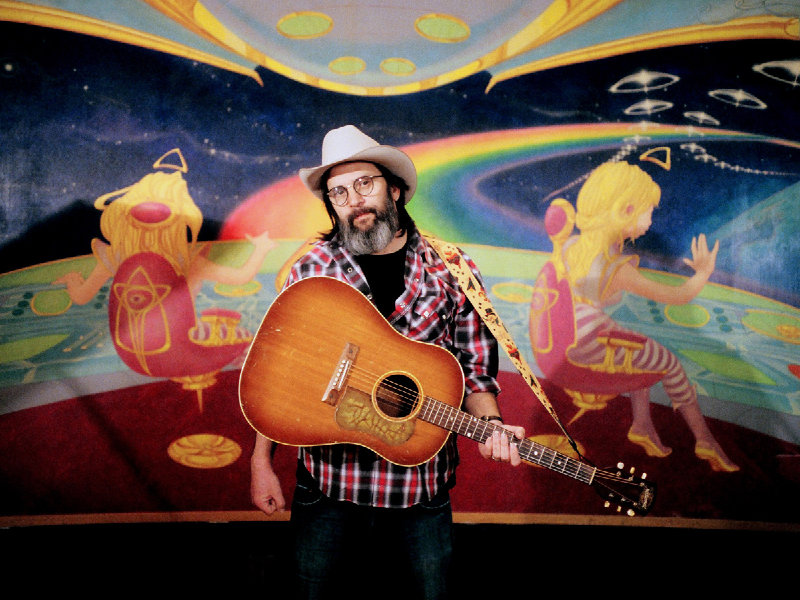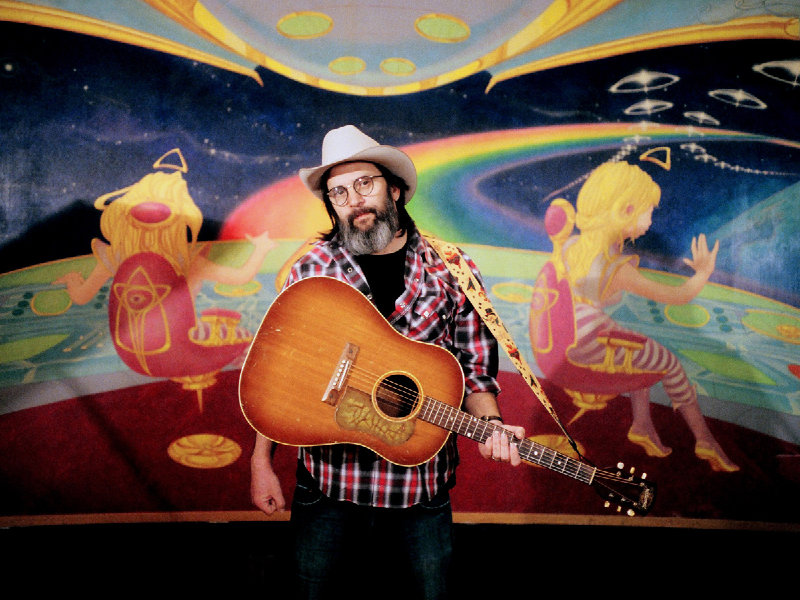A couple weeks ago, when I first heard that Steve Earle was playing a solo acoustic show Sunday night at The Pabst Theater, I mentioned to my friend J.D. that I would try to clear my calendar to attend.
"Is it going to be a concert or a Communist rally?" J.D. asked.
We both laughed at the question, for different reasons.
J.D. laughed because he generally sees things from a conservative point of view and doesn't much care for singer-songwriters like Earle, who use their music and the notoriety it affords as a platform to proselytize on behalf of their political and social beliefs.
I laughed because his crack, delivered in a light-hearted way, provided yet another example of the partisan divide that is devouring politics, pop culture and everything between.
Although I've never met Steve Earle, who I first saw in concert at the UWM Union Ballroom roughly 20 years ago, I have to believe he would take J.D.'s quip as a compliment and proudly point out that people said the same thing about Woody Guthrie, Pete Seeger and some of his other songwriting heroes.
Earle, a 53-year-old Grammy winner who has put out politically charged albums like "Jerusalem" and "The Revolution Starts Now" while speaking out regularly against the drug war (he spent much of the 1980s and ‘90s addicted to cocaine and heroin and played a junkie in HBO's "The Wire"), the death penalty and the Iraq War.
Though he has been described as a roots rocker, alt-country renegade, heartland rocker, bluegrass preservationist and folk / Americana music darling, Earle never has embraced the labels bestowed by the recording industry.
On his latest CD, the award-winning "Washington Square Serenade," Earle channels the excitement of his new Greenwich Village neighborhood and explores love themes inspired by his seventh wife. Allison Moorer, who will join him at The Pabst show.
But you never have to dig deep to find out what Earle is thinking
In the song "Steve's Hammer (For Pete)," a tribute to Seeger, he imagines a time "when the air don't choke ya and the ocean's clean, and kids don't die for gasoline."
The heart of "Serenade" is "City of Immigrants," a song about the American dream:
Livin' in a city of immigrants
I don't need to go travelin'
Open my door and the world walks in
Livin' in a city of immigrants
Livin' in a city that never sleeps
My heart keepin' time to a thousand beats
Singin' in languages I don't speak
Livin' in a city of immigrants
City of black, city of white, city of light, city of innocents
City of sweat, city of tears, city of prayers, city of immigrants
Given Earle's outspoken views and the politically charged atmosphere permeating the culture at this time, plenty of potential customers will ignore Earle's music and his Milwaukee appearance as a "commie rally."
At the recent Stevie Wonder show at Summerfest, many patrons were taken aback when the artist openly backed Barack Obama's bid for the presidency. The common refrain went like this: "Why should I have to listen to that when I came to hear music?"
My response: Isn't that why we look to music, theater, dance, art and other endeavors -- to expand our horizons and challenge ourselves to see things in new and different ways?
Of course, the beauty and value of art lies in the eye of the beholder. The beholders, it seems, don't always evaluate the work in ways that the artist intended.
At about the time Earle began experiencing success in the wave of Nashville stars that included guys like Dwight Yoakam and Randy Travis, Springsteen saw millions misinterpret "Born in the U.S.A" as a jingoist anthem when it was actually a searing indictment of the country's mistreatment of Vietnam veterans.
When Sting sang The Police hit "Every Breath You Take," he cracked a wry smile as couples swayed to what they thought was a beautiful love song but was actually written from the point of view of a sinister and controlling narrator.
Though he is a witty storyteller whose stage banter rivals that of Springsteen, John Hiatt and other musicians with a gift for monologue, Earle doesn't need to rap between songs to get his point across. His music speaks for him in such a clear and direct manner that there is little room for misinterpretation.
That fearless honesty, which can be a scarce commodity in popular music and other arts, informs and enhances Earle's songwriting to the point where even people who disagree with the message can admire the manner in which it is delivered.
I don't know if I'll be able to make it to the show Sunday. If I do go, I'll try to drag my pall J.D. with me.
Host of “The Drew Olson Show,” which airs 1-3 p.m. weekdays on The Big 902. Sidekick on “The Mike Heller Show,” airing weekdays on The Big 920 and a statewide network including stations in Madison, Appleton and Wausau. Co-author of Bill Schroeder’s “If These Walls Could Talk: Milwaukee Brewers” on Triumph Books. Co-host of “Big 12 Sports Saturday,” which airs Saturdays during football season on WISN-12. Former senior editor at OnMilwaukee.com. Former reporter at the Milwaukee Journal Sentinel.





